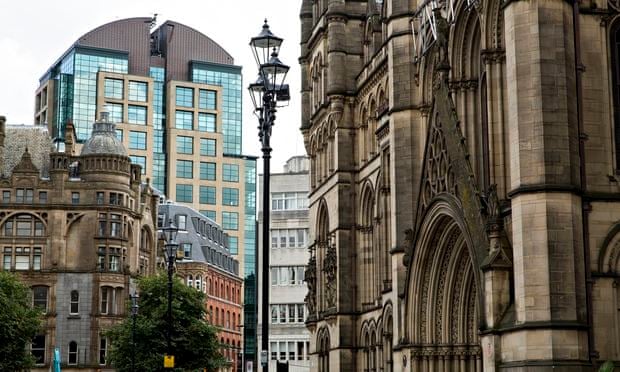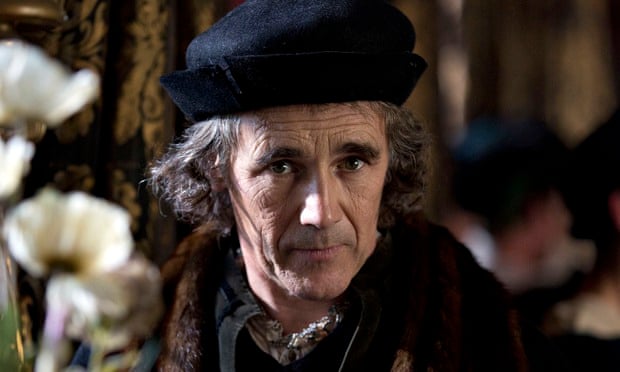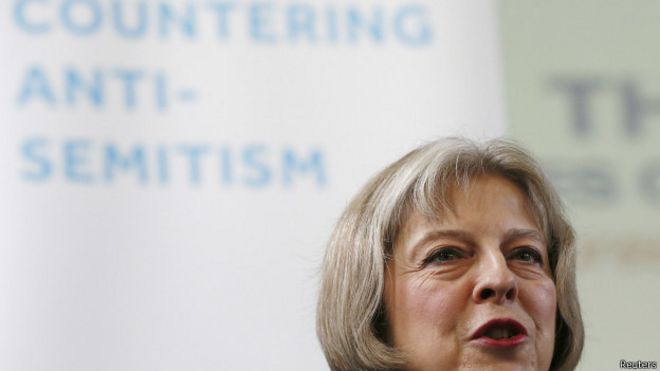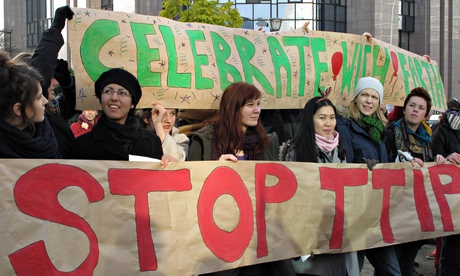"Before Margaret Thatcher’s era, the Tories were conservators, not wreckers. Cameron has gone much further than Thatcher dared. The survival of the United Kingdom itself is in doubt and it’s an open question who “the British” now are. An election result leaving the Tories at the helm would see more destruction, financial, social and moral. What they offer as a vision of who we are, what we value and where we belong in the world is small and mean."
School for LGBT pupils planned for Manchester
School will teach 40 lesbian, gay, bisexual and transgender students who are struggling in mainstream education.

The first school in Britain for lesbian, gay, bisexual and transgender young people could open its doors within the next three years. Based in the centre ofManchester, the specialist state school plans to take 40 full-time students from across the area and will offer up to 20 part-time places for young people who want to continue attending a mainstream school.
“This is about saving lives,” said Amelia Lee, strategic director for LGBT Youth North West, the youth work charity behind the plans. “Despite the laws that claim to protect gay people from homophobic bullying, the truth is that in schools especially, bullying is still incredibly common and causes young people to feel isolated and alienated, which often leads to truanting and, in the worst-case scenarios, to suicide.”
Last September 14-year-old Elizabeth Lowe hanged herself in a Manchester park because she feared telling her parents that she was gay. “Lizzie felt the only option was to kill herself. There was another girl with a similar story in Bolton,” said Lee. “This is not about making a little, safe enclave away from the real world: we work with 9,000 mainstream pupils and 1,000 teachers a year to help educate them about homosexuality. In addition, the support this new school will offer to part-time pupils could happen in their mainstream school, if that’s what they want,” she said.
“But we have an education system that sets up 5%-10% of pupils to fail through fear and structure, because it routinely fails to recognise and incorporate the needs of young people struggling with their identities. We can either hope every school is going to be inclusive, or we can recognise we are not there yet and so, for the moment, we need more specialised schools,” she added.
The school will be specifically designed for LGBT young people who are struggling in mainstream schools, but will be open to other children, including young carers, young parents and those with mental health problems. “It will be LGBT-inclusive, but not exclusive,” said Lee.
A £63,000 feasibility study into the plan is under way thanks to a grant from the Department for Communities and Local Government. The charity has also been involved in discussions with Manchester city council about how it can provide an alternative education for LGBT children in the area.
Lee, who said she hoped the school would act as a trailblazer and inspiration for other areas, said it was unlikely that it would be a free school. “The consultation has a long way to go, but free schools tend to operate at arm’s length from local government, while we are thinking more along the lines of an alternative education provider that’s networked through the local pupil referral units, who will refer children to us for whom mainstream education isn’t working,” said Lee.
A year at the school, which will be funded by the government, will cost £16,000, the same as other specialist schools. But Lee claims that the charity is saving other council services about £1.3m through early intervention and support for struggling children.
“The school will have a gentle, supportive atmosphere. Its curriculum will be closely tailored to each child’s needs and incorporate academic work with youth-work techniques, such as building self-esteem and functional skills by working in the charity’s cafe or community garden,” she said. “It is about trying to develop something that helps people that need extra support.”
Ellie (not her real name) turned to the LGBT Youth North West charity after she was outed by a school friend. “School was awful,” she said. “The PE teacher made me change clothes with the lads because she said I wasn’t attracted to them.
“It annoyed me so much that I stopped going to PE, which meant I got in trouble for missing the lessons,” she added. Ellie eventually changed schools at 16. “There were comments all the time, in most of the classes and in the corridors, and none of the teachers did anything to help me.”
Rob (also not his real name) said homophobic bullying made his education in a mainstream school horrendous. Teachers need to teach about how homophobia is bad and how it affects the lives of LGBT people, he said.
“They need to help us feel safe in our own environment of school. And they should teach the other students how LGBT people just want to be like anyone else. But none of this happens and, as a result, LGBT pupils routinely experience bullying that, if it was racist or sexist, wouldn’t be accepted by the school for a second.”
The new school is being planned as an extension to Manchester’s Joyce Layland LGBT Centre, currently a council-owned, site dedicated for LGBT organisations, incorporating a meeting space, offices, an LGBT library and a cafe.
Sue Saunders, national chair of Schools Out UK, which has been campaigning for the rights of LGBT people in education for 40 years, said a specialist state school focusing on the needs of gay children was a crucial enterprise.
“We are only too aware of how some schools leave their LGBT and questioning students to flounder and we know the high level of attempted suicides,” she said. “We strongly support this exciting and important venture.”
A spokeswoman for Manchester City Council confirmed that the council had been in discussions with the charity about providing an alternative education facility for LGBT children in the area.
“We supported LGBT Youth NW in their bid for funding to look at the feasibility of expanding their premises and developing the work they do,” she said. “One of their development ambitions is around how they might make additional educational support available to LGBT young people. We’ve had an initial discussion with them about that but there are no current plans that we’re aware of to open a LGBT school in the city.”
- This article was amended on 16 January. The original said Elizabeth Lowe killed herself last month. This has been corrected.







 調查發現英格蘭南部城市的經濟增長速度遠超其他地區的城市。
調查發現英格蘭南部城市的經濟增長速度遠超其他地區的城市。

